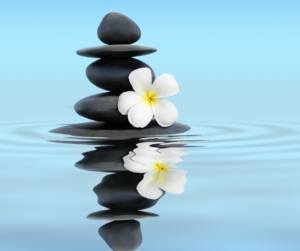
How Can We Truly Practice “Love Everyone, Serve Everyone” in Today’s World?
In a world often marked by division, busyness, and personal striving, Maharajji’s simple instruction—“Love everyone, serve everyone”—can feel both deeply inspiring and quietly overwhelming. How do we live such a vast teaching amidst all the complexity of modern life?
The beauty of Maharajji’s path is that it meets us exactly where we are. This isn’t about becoming saints overnight. It’s about practicing with sincerity, small step by small step, rooted in the understanding that love and service are not separate from daily life—they are the spiritual path.
1. Start Where You Are
Maharajji didn’t demand that we become perfect before we serve. He met everyone—sick or strong, confused or clear—with the same love. He taught that love is not an abstract ideal, but a daily practice. Dada Mukerjee shared how even the smallest acts of kindness, when done with a pure heart, carried divine significance.
Start by seeing the divine in the person in front of you—your partner, your colleague, the stranger on the street. The “everyone” in “Love everyone” isn’t just spiritual seekers or people we admire. It’s everyone—even those we find difficult.
2. Seva as a Way of Life
In Chants of a Lifetime, Krishna Das shares how Maharajji made seva (selfless service) the center of his life and teachings. Whether feeding thousands of people or sitting silently with a single devotee, Maharajji taught that service done without ego or expectation becomes devotion.
Service doesn’t have to be grand. It could be making a meal for someone, listening fully, or offering a smile. Maharajji didn’t separate spiritual practice from daily life—he wove the divine into every moment.
3. Transcending Judgment
To love everyone means we drop the habit of judgment. Maharajji saw no distinction between sinner and saint. One devotee recalled how Maharajji blessed a thief the same way he blessed a monk. “Who knows what karma that soul is working out?” he would say.
This radical acceptance is part of the love Maharajji embodied. To practice it means learning to look beyond behavior and see the divine in each being—even those we disagree with.
4. Practice Remembrance in Action
In Be Love Now, Ram Dass writes that Maharajji constantly repeated:
“Love is the strongest medicine. It is more powerful than electricity.”
This love isn’t passive or emotional—it’s action infused with remembrance. When we serve with the awareness of God in our hearts, every task becomes a prayer. The doing becomes the being.
5. Serve Without Ego, Love Without Attachment
Maharajji never sought praise or recognition. He didn’t need people to know his name. He served out of pure love. The practice he passed on is clear:
Serve without needing to be seen.
Love without needing something in return.
This is hard. But it’s also freeing. When we let go of needing approval, our love becomes limitless.
In Today’s World, This Teaching Is More Relevant Than Ever
To love and serve today means showing up with compassion in our families, workplaces, and communities. It means standing up for justice with humility, and caring for others with no agenda.
The world doesn’t need more opinions—it needs more open hearts. And Maharajji gave us the simplest, most powerful roadmap to live that way.
So we begin, imperfectly, but sincerely. One moment at a time. One breath. One act of love.
Jai Maharajji.
This content includes AI-generated reflections created as part of our ongoing exploration into digital tools that support spiritual engagement and learning. While inspired by the teachings and spirit of Neem Karoli Baba, the words shared here are not direct quotes and are not intended to imitate or represent Maharaj-ji’s actual voice or teachings.
Our intention is to offer creative interpretations that honor his legacy and inspire deeper connection through seva, love, and devotion. As always, we encourage each reader to connect with Maharaj-ji’s teachings in their own heartfelt and authentic way.
